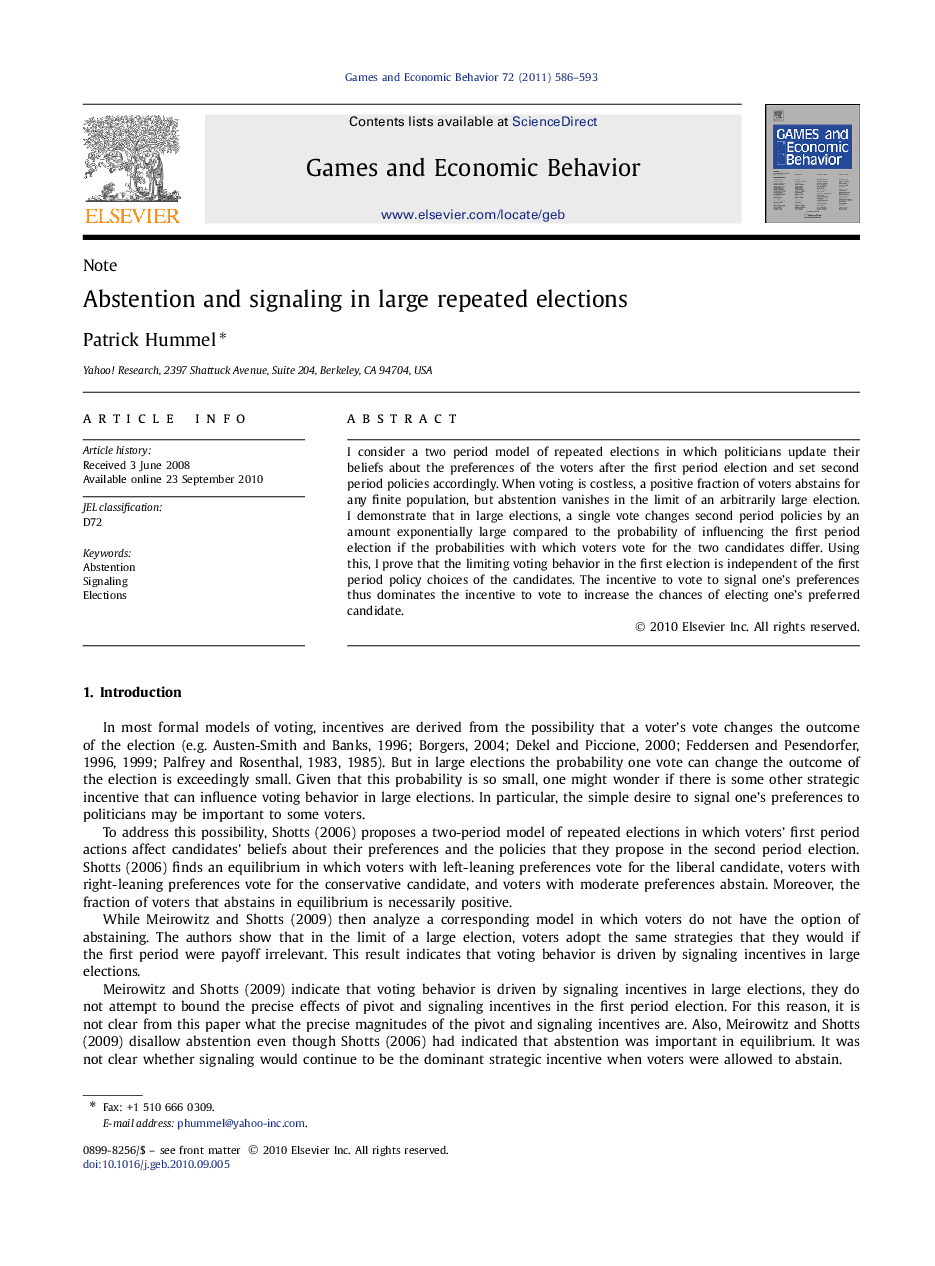| Article ID | Journal | Published Year | Pages | File Type |
|---|---|---|---|---|
| 5072382 | Games and Economic Behavior | 2011 | 8 Pages |
Abstract
I consider a two period model of repeated elections in which politicians update their beliefs about the preferences of the voters after the first period election and set second period policies accordingly. When voting is costless, a positive fraction of voters abstains for any finite population, but abstention vanishes in the limit of an arbitrarily large election. I demonstrate that in large elections, a single vote changes second period policies by an amount exponentially large compared to the probability of influencing the first period election if the probabilities with which voters vote for the two candidates differ. Using this, I prove that the limiting voting behavior in the first election is independent of the first period policy choices of the candidates. The incentive to vote to signal oneʼs preferences thus dominates the incentive to vote to increase the chances of electing oneʼs preferred candidate.
Keywords
Related Topics
Social Sciences and Humanities
Economics, Econometrics and Finance
Economics and Econometrics
Authors
Patrick Hummel,
